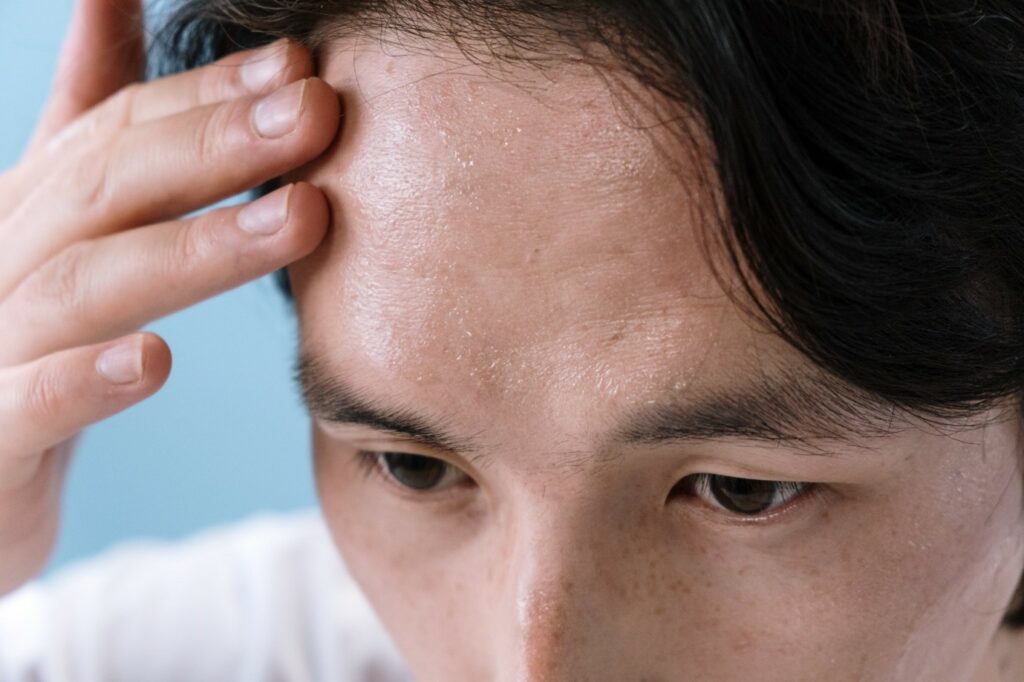What is Hyperhidrosis and what causes Excessive Sweating?
What Is Hyperhidrosis?
Excessive sweating is hard to measure as it’s difficult to determine how much sweat is too much sweat. The NHS describe it as sweating even when your body has cooled down and doesn’t need to sweat. There is no obvious cause for excessive sweating, but it could be due to another condition you have or, a side effect of any medication you are taking. The name for excessive sweating is hyperhidrosis. So, what is hyperhidrosis? Hyperhidrosis is where the over signalling of the responsible nerve causes their sympathetic response of sweat glands to be higher. This leads to extreme sweating. Hyperhidrosis occurs in certain areas of the body more than others. The most common places are where you find the most sweat glands: hands, feet, and armpits, but you may also notice it around your scalp, face, and pubic area.

What Causes Hyperhidrosis?
As stated previously, there is not an obvious cause of perfuse sweating, however it is more likely you will suffer from it if you have a family member who also suffers. Medication could be the root of your problem. For example, some antidepressants are known to have the side of effects of extreme sweating and overheating, therefore if you have started experience constant sweating make sure to re-examine any new medication you are taking. Anxiety can also cause perfuse sweating, which is a viscous and unfair cycle, as hyperhidrosis causes a person to be more anxious. The NHS suggest if you think you may be suffering with hyperhidrosis, re-evaluate and if you are excessively sweating and experiencing any of these hyperhidrosis symptoms, then go to your GP:
- things you can do yourself are not helping
- it’s lasted for at least 6 months
- it stops you from getting on with your daily activities
- it happens at least once a week
- it happens at night (you’re having night sweats)
- you have a family history of excessive sweating
- you’re taking medicine for another condition
What At-Home Remedies Can Help Reduce Hyperhidrosis?
It is important you try at-home hyperhidrosis treatments before going to medical treatments. Simple ways that may help reduce hyperhidrosis symptoms, are wearing baggy clothes to reduce the signs of sweat; wearing socks that absorb moisture and changing them twice a day at least; and to wear leather shoes and switch-up the shoes you wear day-to-day. Natural fibres such as cotton, linen and silk are a good choice as they allow the skin to breathe, reducing the constant sweating that hyperhidrosis causes. Another sweating treatment is replacing any soap-based product with emollient washes. This hydrates and soothes the skin, whilst locking in any moisture and can be bought over the counter at any pharmacy. Another skincare switch that helps is using antiperspirant instead of deodorant. The aluminium chloride in the antiperspirant helps block the that lead from the sweat glands to the skin, whereas deodorant just masks the smell. Natural alterations also include reducing your intake of spicy foods, caffeine, and alcohol. As anxiety is sometimes a prompt for hyperhidrosis, another could be working on your stress levels by talking to your GP about therapy options and learning relaxation methods that work for you.

What Are the Professional Treatments for Hyperhidrosis?
At the pharmacy you can ask for sweating treatments such as, stronger antiperspirants, armpit or sweat shields for your clothing, foot powders and soap substitutes. If these don’t work, then the doctor may suggest stronger hyperhidrosis treatment methods. There are tablets you can take to reduce sweating, which will probably be the first method they prescribe. If that is unsuccessful then other options are: a weak electric current to the areas effected; Botox injections (often in the armpit region) to block excess nerve signals to the sweat glands; and in extreme cases, surgery to remove the sweat glands.












